Andrew Bagshaw and Chris Parry: Piecing together last known movements of missing Brits in Ukraine
- Published
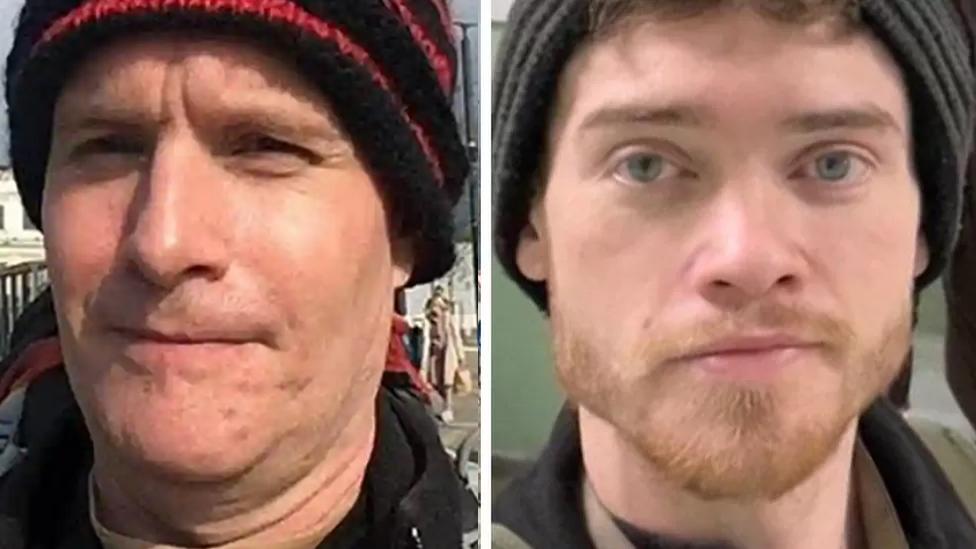
Andrew Bagshaw, pictured left, and Christopher Parry have been reported as missing in Ukraine
The body of one of two Britons who went missing in Ukraine has been found, according to a Russian mercenary group.
While the claim has yet to be verified by the BBC, the disappearance of Andrew Bagshaw and Chris Parry has raised questions about their last-known movements and what they were doing in Ukraine.
Chris Parry, 28, had spoken to multiple journalists saying he was working as a volunteer evacuating civilians from the front lines in eastern Ukraine.
A Ukrainian charity - Pavlo Vyshniakov Foundation - told the BBC that Mr Parry had worked with them, but that Mr Bagshaw had not. A Telegram channel associated with Yevgeny Prigozhin, boss of Russian mercenary group Wagner, earlier released an image of a document which had the name of that charity and Mr Parry's permission to operate as a volunteer.
The same Telegram post included images of what appear to be the two men's passports, although we have not been able to verify them definitely.
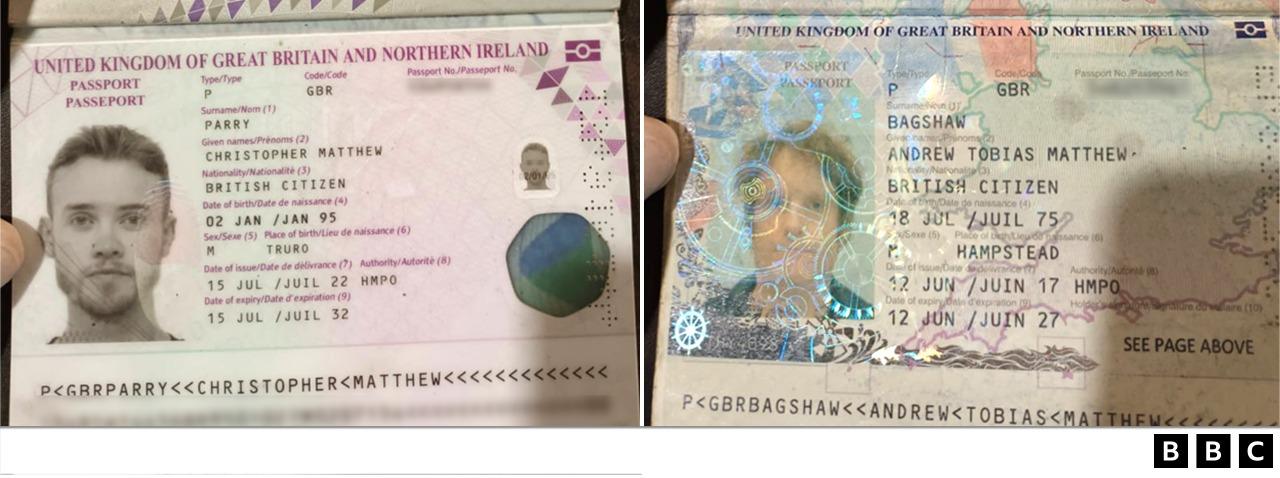
Images posted online appear to be of the two men's passports, not definitively verified
We spoke to a former UK border official who told us that "from looking at these pictures they appear to be genuine, several safeguards can be seen."
A volunteer who said he worked as Andrew Bagshaw's interpreter supplied us with a video posted on 12 December 2022 showing Mr Bagshaw and Mr Parry wearing civilian clothes carrying a stretcher into a hospital building in the city of Sloviansk in eastern Ukraine. We've been able to verify the location by comparing the video with other confirmed images of the hospital.
Mr Parry and Mr Bagshaw, 48, were believed to have headed to the heavily bombarded front-line town of Soledar on Friday 6 January. In an Instagram post, a friend of theirs - also working as a volunteer - said that the pair had made the journey to carry out evacuations.
"If you have any information on the whereabouts of the boys, or have seen their car (Black Land Rover, AFIO HWU), please contact me or the police," the friend added.
There are lots of groups in the area, which include foreigners, who help with evacuations of civilians and bring food and supplies to people.
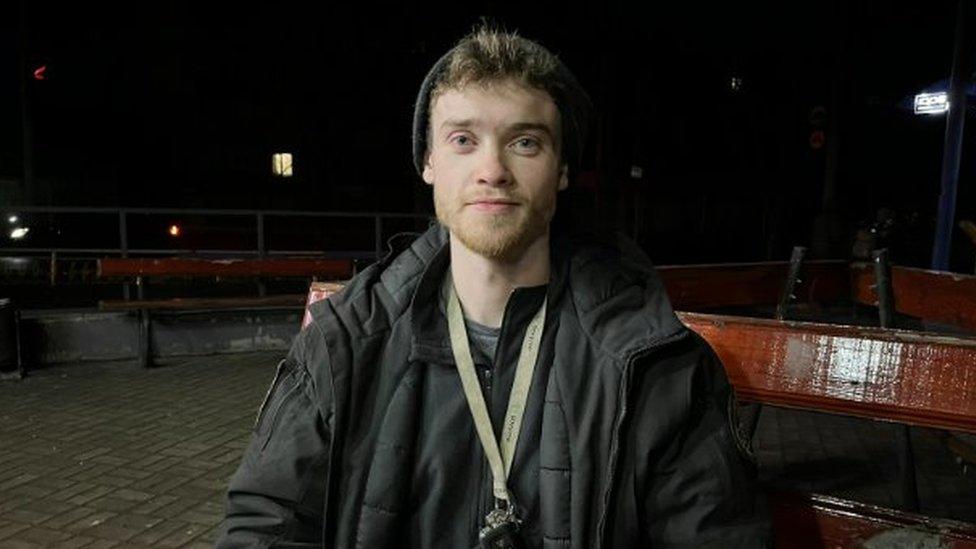
Chris Parry met BBC journalists on 1 January in Kramatorsk
BBC correspondent Yogita Limaye and producer Imogen Anderson met Mr Parry, from Truro in Cornwall, on new year's day in the city of Kramatorsk, in the eastern Donbas region. They had been looking to report on Bakhmut, the scene of intense fighting, and the volunteers working there.
He told them he had been staying in the city for about six weeks, and had just acquired a new 4x4 through a fundraiser he had started two months before.
He told the BBC journalists that he had to abandon his old car in Bakhmut the previous week. It had been "shot by a tank" he posted on Instagram at the time.
He told the pair that he had no intention of leaving Ukraine, where he had been since March.
The journalists were on their way to Bakhmut on 2 January when Mr Parry got in touch to say he was also going into the city. But once they reached Bakhmut they lost reception and that was the last contact they had with the volunteer.

The following day, Mr Parry gave an interview to BBC Radio Cornwall and described a close encounter he'd had with a drone in the Bakhmut area.
Mr Parry said that he was staying in a town 10 miles from the front line and explained his motivation was to help children particularly.
"To be able to get them out of these war-torn areas, it makes it definitely more worthwhile than anything else that I can imagine."
In a previous interview with the same station in November 2022, he said he had become "obsessed" with Ukraine after the invasion, realised he could not fight and decided it would be more useful for him to get a van and help evacuate civilians.
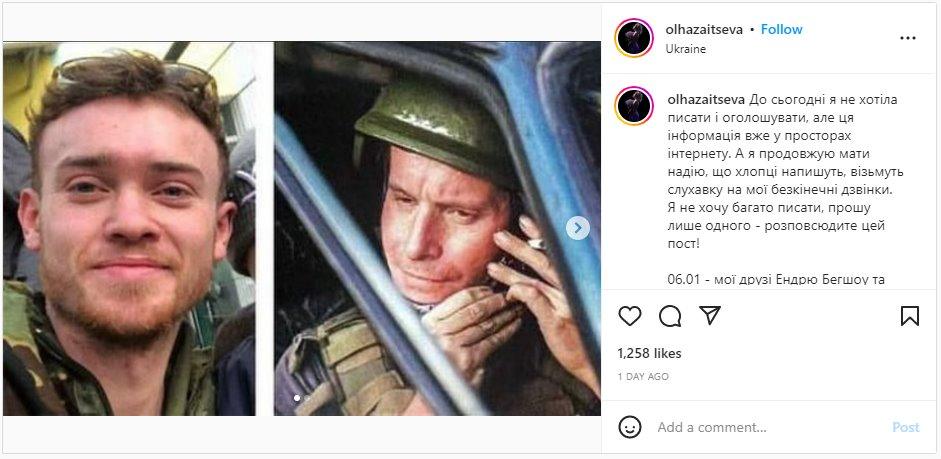
A friend of Andrew Bagshaw and Chris Parry said the pair were missing in a message posted on Instagram
On 3 January, three days before the volunteers disappeared, Mr Parry was interviewed in Bakhmut, external by freelance journalist Arnaud de Decker.
Mr Parry told the journalist he had been volunteering as an evacuation driver.
"I receive requests from family members who ask us to go and collect their relatives."
Describing an evacuation, he said there had been "lots of Ukrainian missiles... a lot of small arms firing".
He said: "A lot of volunteers won't go anymore, but there are people there who want to get out, so I'm willing to go."
Mr Parry said he used a vehicle for evacuations - his black Land Rover is seen in the video.
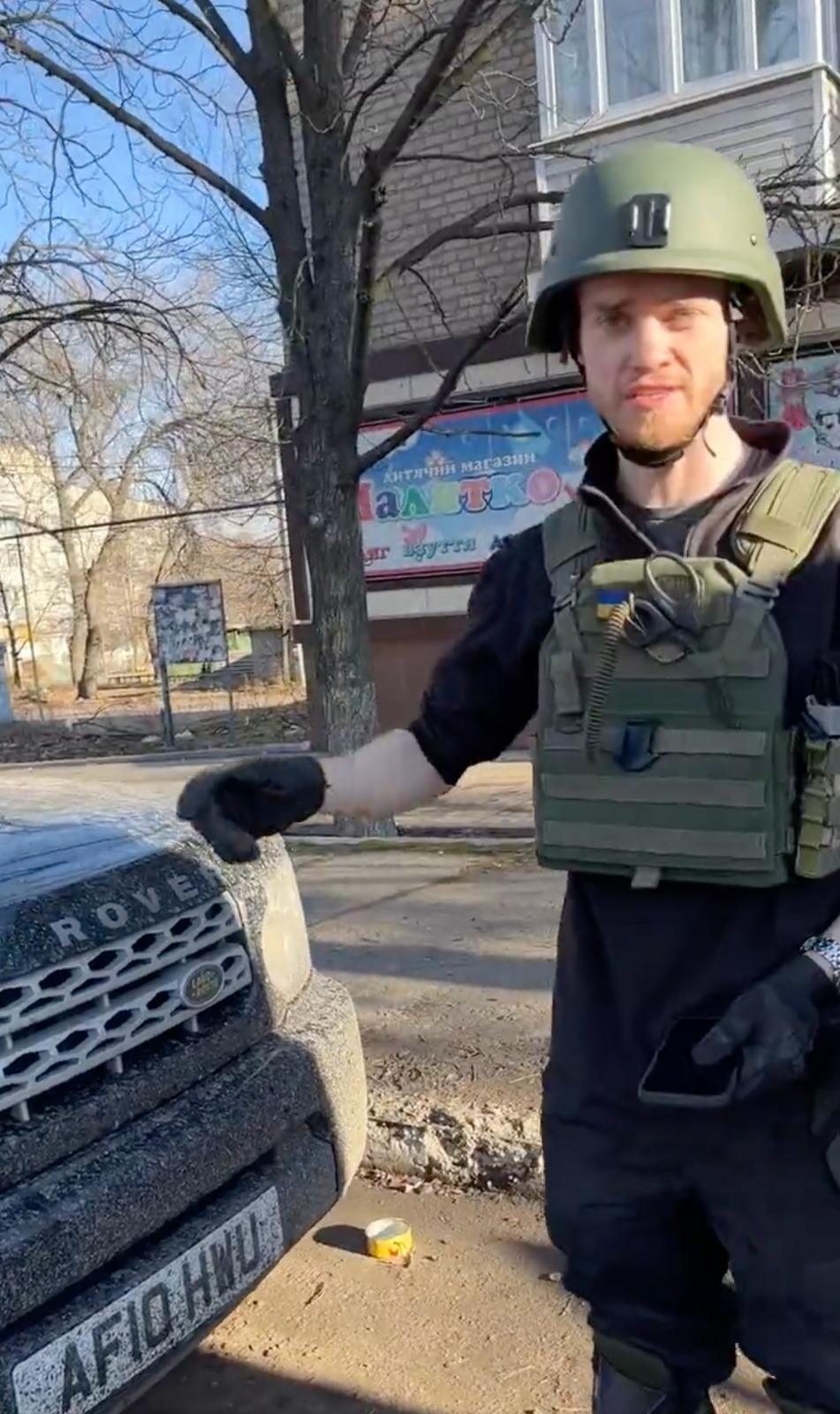
Chris Parry said he'd obtained a 4x4 vehicle through an online fundraiser
Mr De Decker spoke to BBC Radio Cornwall on Thursday about the interview on 3 January. He said when he met Mr Parry, he had just returned from an evacuation in the east of Bakhmut. "It's a very dangerous part. Volunteers, most of them, they don't dare to go there, because it's too dangerous.
"Chris went that morning to rescue a resident who was stuck... in her apartment. Chris was able to go to the eastern part with his own car, cross the river, and he was able to save her."
Mr De Decker said Mr Parry had "probably saved hundreds of people from the frontline areas".

Fighting around Soledar in eastern Ukraine has left many buildings in the town in ruins
Regarding Andrew Bagshaw, the BBC has spoken to Grzegorz Rybak, who lives in Edinburgh, but travelled to Ukraine in November. He says he carried out evacuations alongside Mr Bagshaw, acting as his interpreter. Mr Rybak said the 48 year old had travelled to Ukraine in March, and first worked distributing aid, before starting evacuations during the summer.
Journalist and filmmaker Laurel Chor told the BBC she first met Mr Bagshaw in October in Kramatorsk. She says she joined him on evacuations in Bakhmut on three occasions in November.
"Andrew had been doing it for months and months and largely on his own. He lived in Kramatorsk, had a vehicle that he'd scrounge up donations for and he was really doing all the evacuations that he could. He was very quiet about it."
She added: "Andrew was so experienced."
She said she believes there were about 12 volunteers working independently on frontline evacuations in the region. "There's a small group of mostly independent volunteers, mostly foreign, who have just taken upon themselves to do evacuations.
"They don't necessarily work with an organisation. What they do is so dangerous.
"They are often going into areas that are actively getting shelled and sometimes they go further in where it's actually the grey zone of the contested territory, in between Ukrainian and Russian positions."
The Foreign Office has not confirmed whether either of the volunteers have died.
Additional reporting: Daniele Palumbo, Paul Myers in London and Liubov Sholudko, in Ukraine